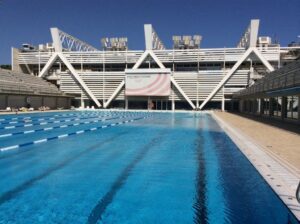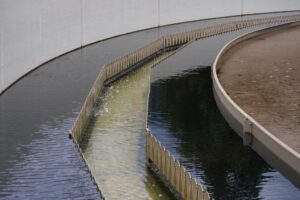03/31/2020 | Swimming Pool & Spa | 8 MINUTE READ
Salt Water Pool vs. Chlorine Pool: Pros, Cons, Comparisons
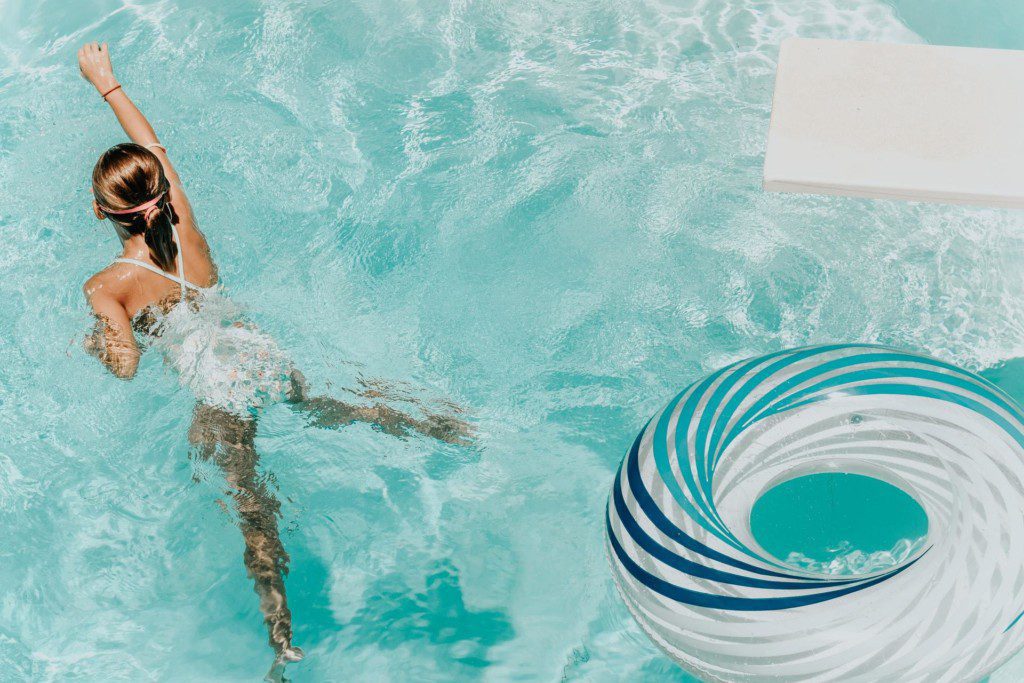
If you’re in the market for a new pool, there’s a lot that you’ll need to consider when choosing a type of pool. The two main pool systems that you can select from include a salt water pool and a chlorine pool. The main difference with these pool types involves the amount of maintenance and testing that needs to be done with the water. When you select a salt water pool, the generator inside the pool will maintain the chlorine levels for you, which means that the water won’t need to be tested as often. On the other hand, chlorine pools require you to manually add chlorine to the water on a weekly basis.
Before you choose a pool for your home, it’s important to understand how these two pool types differ if you want to make the right decision. Even though both pool types provide homeowners with numerous benefits, they work very differently.
This article will go into greater details about the pros and cons of these types of pools while also providing you with an in-depth comparison.
Salt Water Vs. Chlorine: Which One Is Better?
When you’re looking to obtain the right pool for your home, it’s important to understand the many differences between salt water pools and chlorine pools. When you select a salt water pool, you’ll be required to add salt to a chlorine generator, which will convert the salt into chlorine that’s filtered into the pool. On the other hand, chlorine pools require owners to place chlorine directly into the pool water on a regular basis. Even though both pool types provide similar results and swimming conditions, there are some key differences that you should be aware of if you want to determine which option is better for you.
Salt Water Pool |
Chlorine Pools |
|---|---|
|
|
The type of pool that you choose largely depends on your budget and your overall priorities when selecting a pool. No matter which option you choose, you should be provided with a long-lasting pool.
Salt Water Pool Systems
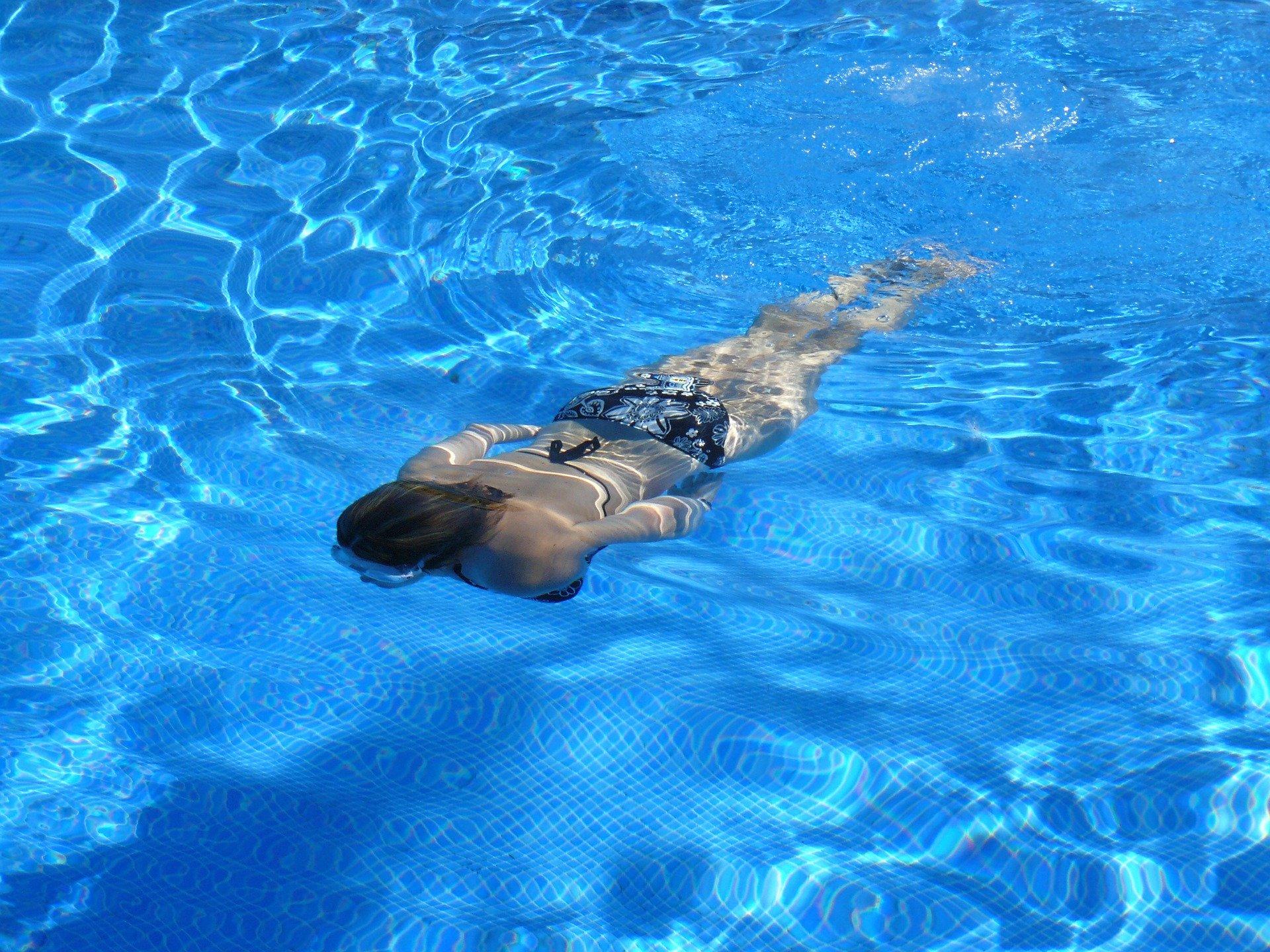
Salt water pools are notable for including a salt water generator that’s designed to regulate and maintain the proper pool water chemistry. The generator works via a process known as electrolysis, which converts the salt that’s placed inside the generator into chlorine that’s distributed to the pool. This works by turning the dissolved salt into hypochlorous acid and sodium hypochlorite, the former of which occurs when chlorine is added to water. The generator will maintain the chlorine levels so that you don’t need to measure the water chemistry as often. The standard chlorine levels for this type of pool are situated at 3,000-4,000 PPM.
Pros |
|---|
Maintenance
Pool Environment Quality
Cost
Swimming Pool Features
|
Cons |
|---|
Maintenance
Pool Environment Quality
Cost
Swimming Pool Features
|
Chlorine Pool Systems
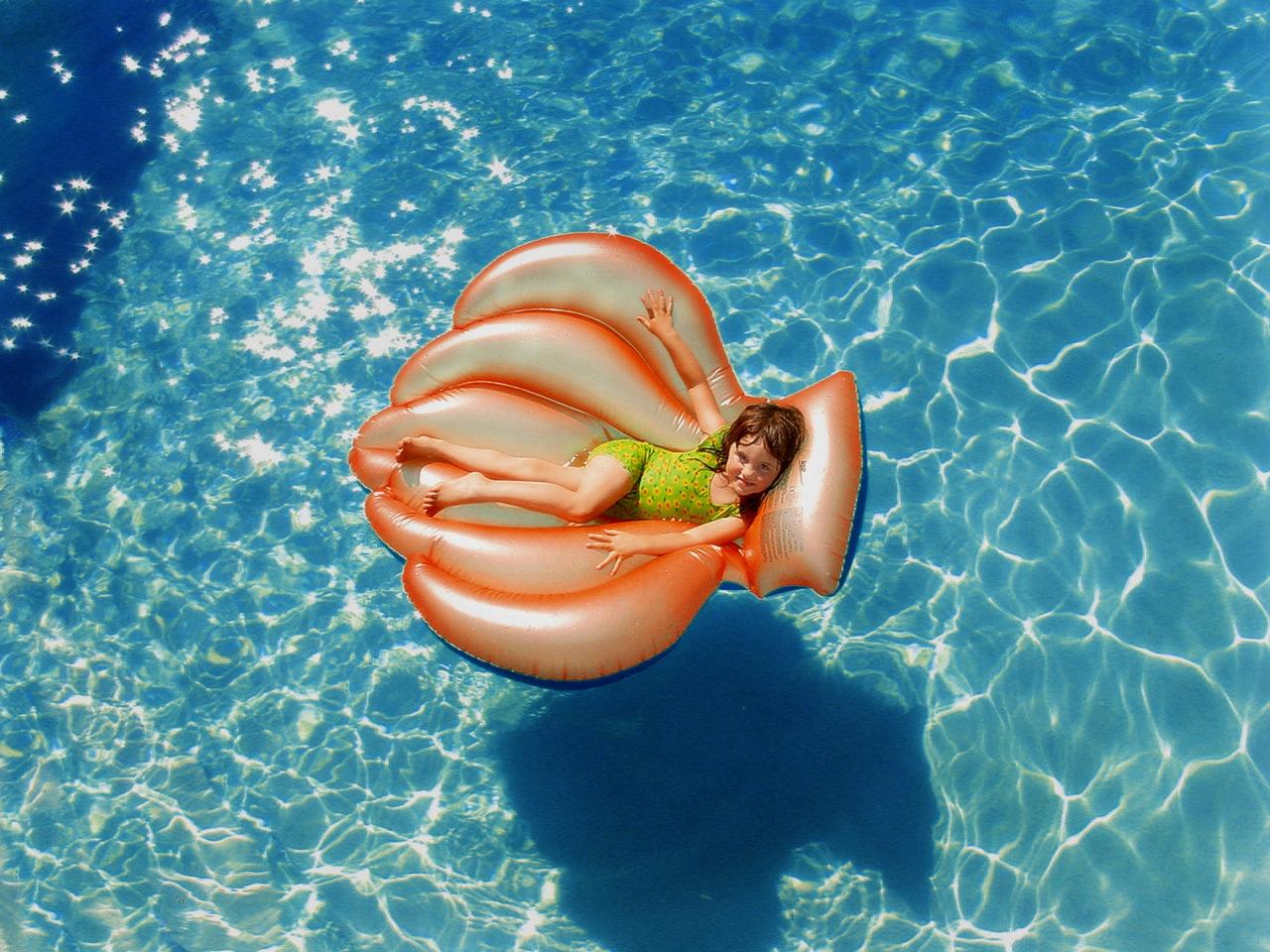
Over the past century, chlorine has acted as the main sanitizer for pool water. When you obtain this type of pool, you will be required to add chlorine to your pool water, which will break down into a variety of chemicals that are able to kill the algae, viruses, and bacteria in the water. However, chloramines can develop in the pool water, which can create certain health issues. In order to effectively eliminate chloramines in these pool systems, it’s necessary to place some additional chemicals into the water.
Pros |
|---|
Maintenance
Pool Environment Quality
Cost
Swimming Pool Features
|
Cons |
|---|
Maintenance
Pool Environment Quality
Cost
Swimming Pool Features
|
Above Ground vs. In-Ground Pools
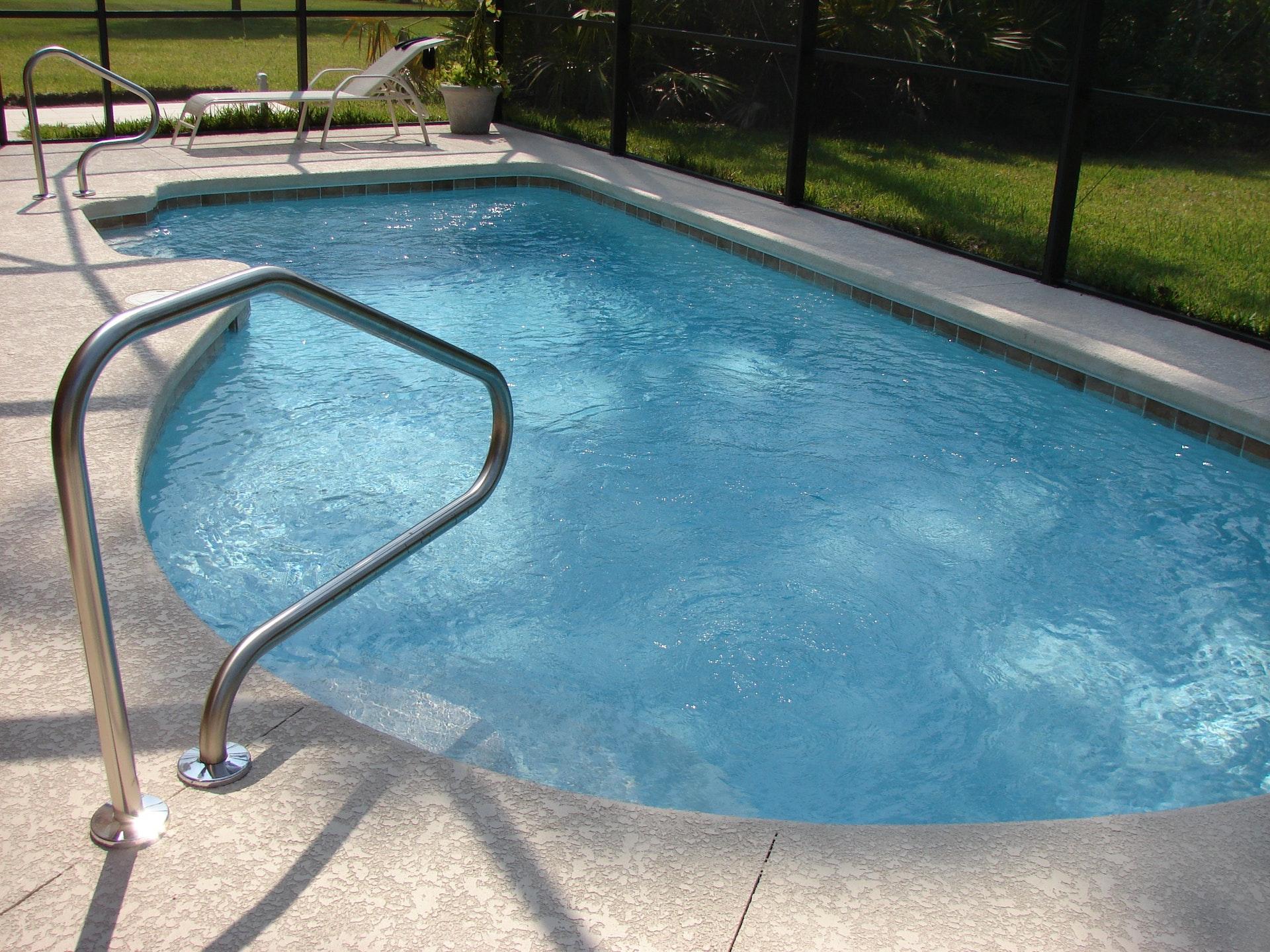
If you have already decided which type of pool you would like to purchase, it’s still necessary to determine if you’re going to select an above-ground pool or an in-ground pool. The best aspect of selecting an above-ground pool is that they only cost around $750-$2,500 to install. Both salt water and chlorine systems are ideal for an above-ground pool. If you choose a salt water system to place above ground, it’s recommended that you select polymer walls in order to avoid corrosion.
As for in-ground pools, these are usually known to last for far longer than their above-ground counterparts. However, the upfront costs can be anywhere from $35,000-$65,000. A salt water system is ideal for this type of pool since you can pair it with features that are resistant to salt water.
Along with longevity, the main difference with these two types of pools is with the cost. If you want a pool that will increase the value of your home while also lasting for much longer, an in-ground pool may be right for you. However, above-ground pools are highly beneficial if you just want a place to swim without completely altering the layout of your backyard.
Choosing the Best Pool System for You

When you’re trying to identify the best pool for your needs, the factors that can help you choose include:
- Cost
- Pool environment quality
- Maintenance
- Pool features
By comparing these aspects of each pool type, you should be able to make an informed decision that you won’t regret immediately after purchasing the pool. Whether you select a salt water pool or chlorine pool, you’ll likely need to test the water on a regular basis, which can primarily be done with pH sensors and ORP sensors, the latter of which will help you measure and adjust the chlorine levels.
Here at Sensorex, we offer a wide range of sensors that can assist with measuring the quality of pool water. If you need to make sure that the pH levels aren’t too high, the main pH sensors that we offer include the pH2000 sensor and the S272CD sensor. As for the ORP sensors that are available at Sensorex, you can select the SD7000CD-ORP sensor, which provides precise measurements and is designed to withstand pressurized applications if necessary.
Call Sensorex today if you have any questions about the products we provide.
Posted by Sensorex on March 31, 2020
Sensorex is a global leader in the design and manufacture of quality sensors for water quality and process applications. The company offers more than 2000 sensor packages for pH, ORP, conductivity, dissolved oxygen, free chlorine, chlorine dioxide, UV transmittance and other specialty measurements, as well as a full line of sensor accessories and transmitters. Its expert technical support engineers solve analytical sensor challenges with custom designs and off the shelf products.



